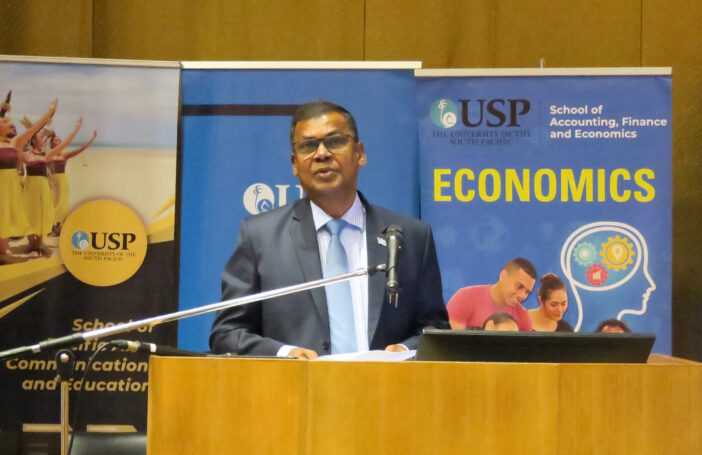 This is an edited version of Paul Collier’s remarks at the launch of the edited volume, State Fragility: Case Studies and Comparisons, at the 2023 Australasian Aid Conference.
This is an edited version of Paul Collier’s remarks at the launch of the edited volume, State Fragility: Case Studies and Comparisons, at the 2023 Australasian Aid Conference.
I have a few things to discuss.
First, I want us to be pioneers of something that is starting to happen across the human sciences that is absolutely in its infancy. We need an integrated human sciences in which economics, anthropology, history, and political science all work together. At the moment, we do not have that.
I want to argue that the study of conflict is actually the best place to start because it is so obviously not the domain of any particular discipline within the human sciences.
It certainly does not belong exclusively in economics; economic models use a nasty little creature called the economic man who is completely untrustworthy and who would not do anything for anybody other than themselves. And it is a very poor description of human behaviour, which we now know. It does not belong exclusively in the domain of military studies; we know that from repeated and massive military operations in fragile states. So that is not the way forward. And it does not belong exclusively in anthropology because anthropology cannot handle economic translation.
Part of the cure for fragility is economic growth, which develops productive jobs. We know that history matters, but history is not destiny. History matters, but you can escape it; a bad history does not doom you. Nor are you guaranteed a good future by a good history. We know finally that community matters, that unless you have community, really there is no glue in a society to hold it together. But we have seen that a community, with a lot of glue, can turn absolutely vile. It can turn on other communities.
So, there is a big task ahead, and you as a community of researchers, if you are not that already, that is what you need to become. You need to join the forces of the economists, the military historians, the anthropologists and the political scientists.
Now let me turn to Nemat Bizhan and his pioneering work on state fragility.
Nemat and his co-authors have produced a series of case studies, and I think in the present state of the art, case studies are really the safest technology we have got. I don’t think we learn a lot from heavy econometrics. I do think we learn a lot from comparisons.
Let me give you a few examples. One of the cases Nemat and his authors consider is Afghanistan. And here is my lesson from what Afghanistan became. To the extent that there is a recipe for reducing conflict, we need to avoid arrogance in leaders. We need to listen to what local people say, and we need to avoid what I call moral imperialism – where we in high-income countries think that our values are the only values that have any justification anywhere, and try and use our economic or military power to impose them on other societies. In Afghanistan, we made all three of those mistakes.
Let me remind us of a book called Fixing Failed States. A confident title, isn’t it? Written by Ashraf Ghani who, no sooner had he published this book, became the president of Afghanistan. So, he was confidently asserting that he knew how to fix a fragile state like Afghanistan. Did he know? That image of him flying out of Kabul while expecting soldiers to carry on fighting on his behalf – that image did more damage to the credibility of the Western powers than any other I can think of in recent times. So, there was a leader who was wildly overconfident: “I know how to fix fragile states”. Actually, not only did he not know, but he breached all sorts of rules about moral behaviour. He did not show courage, he wasn’t prepared to die for his country, and nor were the rest of the senior leaders in Afghanistan. So, we need to learn from the lessons of Afghanistan.
Let me turn to another comparison within the book.
The book looks at two African settings. A very obvious pairing because these neighbours used to be, in colonial times, one single country. And that is Rwanda and Burundi. They both had appalling intercommunal violence and then came out of that in the mid- to late 1990s and adopted different models. Burundi got the UN model of how to improve a fragile state, and the UN model was that we leap straight to democracy by having multi-party elections. We had a government that tried to reconcile all the parties.
The subsequent history of Burundi could not be more catastrophic; with enormous amounts of intercommunal violence, it is now the poorest country in the world. It is considerably poorer than when the UN model started. If we compare Burundi with Rwanda, in the mid- to late 1990s, their per-capita incomes were identical. But the per-capita income in Rwanda tripled at the same time as it fell substantially in Burundi. There is a spectacular divergence from the initial position and you couldn’t have predicted that diversion.
The international community thought it knew what it was doing when it insisted on Western-style democracy and elections from the start. It went very badly wrong. We need to learn from that sort of failure. I am not saying that Rwanda is perfect; far from it, but there is no question that it is much better than what happened in Burundi. So, we need to understand why Burundi failed and why Rwanda has been so remarkably successful in comparison.
Finally, I want to turn to Papua New Guinea, which this book also examines. PNG has a long history of conflict. Quite a lot of aid is poured into PNG, and quite a lot of pressure exerted to adopt the norms of Western society, what I call moral imperialism; it has not worked very well. PNG is an extraordinarily fragmented society; even today, there are more than a thousand languages. So I look at PNG from a distance, and I see intercommunal conflict and a lack of trust, and on the basis of that, a government on the national level that really can’t work very well.
So, starting from there, what could be done better? Can we listen to the voices in PNG, move toward the situation where we pass agency to the people of PNG, and learn from our own failures? Not all the communities in PNG fight; some have learned how to build alliances and others have not. We need to use that variation and learn from it.
Paul Collier’s forthcoming book, Left Behind: A New Economics for Neglected Places, will be published in June 2024.





This is an interesting article that hit the nails on its head and I applaud the author for recognizing a need for all disciplines to work together and acknowledge the complexities of the socio-economic and political structures in each country.